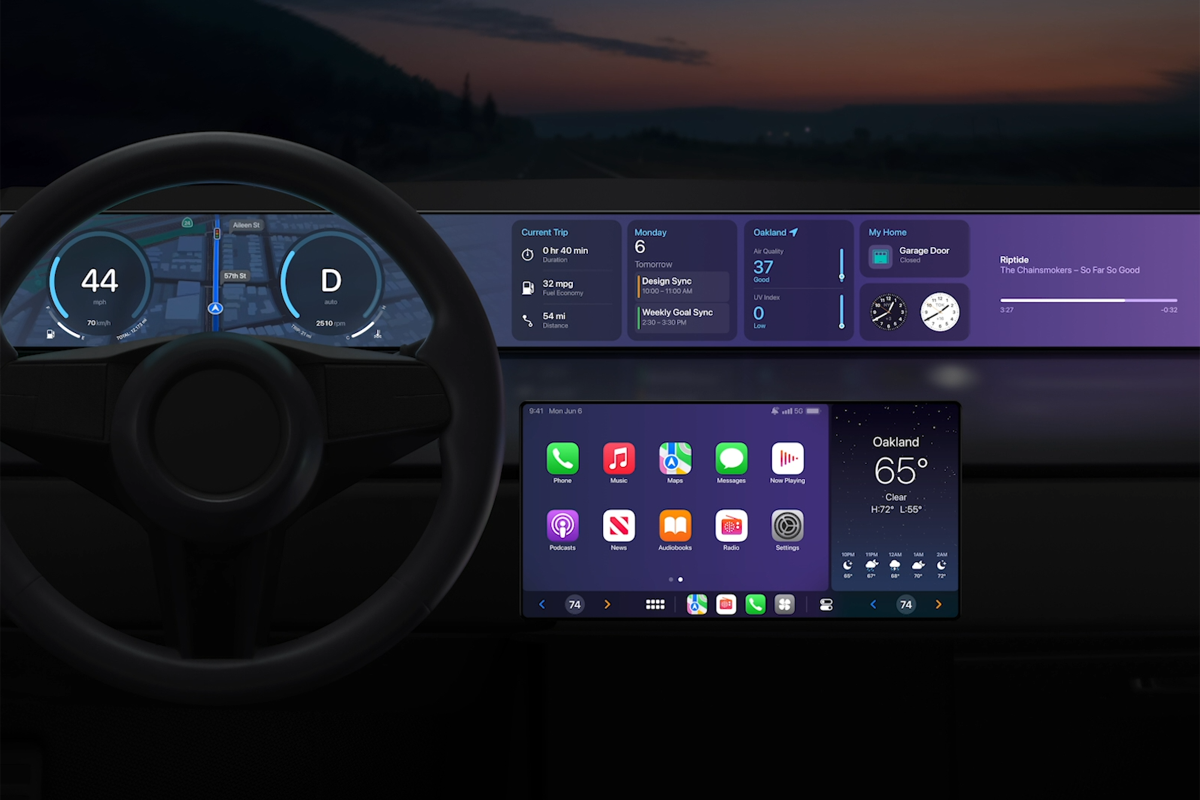iOS 16 brings just the right amount of Android to our iPhones
When iOS 14 came out, TikTok was filled with videos of extreme iPhone interface customization techniques, courtesy of custom widgets and icon replacement via Shortcuts. Everyone’s aesthetic is different, and you might have considered those customizations silly or gaudy, or even ugly, but the success of those videos sent a powerful signal: people want to customize their devices.
It’s a tale as old as time, dating back to the early days of the Mac. And yet modern Apple has been reluctant to let users customize their devices. Yes, you can set your own Lock Screen and wallpaper, but beyond that, things have been pretty limited.
But the iOS 16 Lock Screen, with its adjustable fonts, color overlays, and custom widgets, suggests that Apple may be entering a new phase. It seems that Apple has taken notice of that positive reaction to iOS 14 and has decided to loosen the reins a little bit. The Lock Screen may be just the start of the changes in the works.
Some choice, but not much
Apple officials have said that the editable iPhone Lock Screen in iOS 16 is inspired by the face editor on the Apple Watch. It’s basically the same interface, with choices within a highly constrained set of options. There’s a limited palette of colors and fonts, just as the Apple Watch is limited to certain faces, colors, and complications. There are a few slots for widgets–with a design that’s lifted directly from Apple Watch complications–but it’s hardly a free-for-all.
Apple
Apple even analyzes your photos and only offers effects that it feels are appropriate for your chosen image. One way to view this is that Apple is helpfully curating its effects in order to save you time; you could also consider this Apple preventing you from making aesthetic choices it doesn’t agree with.
It’s interesting to consider that Apple has decided to optionally tie Lock Screens to Focus modes. When you change Focus modes, your Lock Screen and home screen can change, too. It seems that Apple is slowly creeping toward the idea of themes. Namely, a system in which your iPhone would look dramatically different based on context or even whim.
It’s funny: iOS currently offers light and dark themes, which look totally different from one another. Those themes aren’t related to your Lock Screen, home screen, or Focus modes. But creating a broader theme system does seem like a logical direction, doesn’t it?
When Android 12 introduced the concept of personalization and customization, it did the Android thing and basically let a user do whatever they wanted. Apple won’t ever do that, mostly because it knows that complete freedom will lead to a whole bunch of ugly decisions–think of desktop publishing in the 1980s, a world full of disastrous font choices and horrendous design decisions. Rightly or wrongly, Apple would like to save its users from their own bad decisions. One way it could do that is by carefully curating a bunch of theme options it finds acceptable, perhaps backed by some machine-learning-based analysis that doesn’t offer the user choices Apple deems ugly.
Who owns a CarPlay car?
Now here’s a tangent–but not really. The new CarPlay, shown off by Apple at WWDC 2022, will supposedly take over all the interface elements on a car. In Apple’s demo of the new features, the imagery Apple showed suggested a bunch of different interface themes that a user could switch between–all of them quintessentially Apple in appearance.

Apple
Will automakers really want to give over their car interfaces to Apple’s style? Will they be forced to redesign their cars to match?
It turns out that customization can solve problems as well as create them. Let’s suppose Apple is offering a base-level car operating system to automakers, akin to Google’s Android Automotive. Automakers like Android Automotive because it’s open-source and customizable. Apple’s never going to do that.
But… what if CarPlay has customizable themes? Then, if you’re Volvo, you can add themes that fit with your corporate aesthetic or even a model-based design flourish. Perhaps users can opt to switch away to themes of their own or those blessed by Apple. Perhaps Apple and Volvo will put up some guardrails to prevent users from coloring too far outside the lines. It’s a possibility.
Apple gets the message
When I look at the Lock Screen in iOS 16, I see an Apple that’s gotten the message that we want to personalize our devices but isn’t willing to do what Android did and let everyone have at it.
Instead, it’s going to do this the Apple way. The company seems to be building a set of themes that allow users to express themselves by choosing from options and sets and styles rather than making decisions they’ll probably regret later.
With any luck, Apple’s approach will continue to broaden and expand, and our devices (and even cars?) will get a little more personal and customized with every passing OS update.
For all the latest Technology News Click Here
For the latest news and updates, follow us on Google News.
